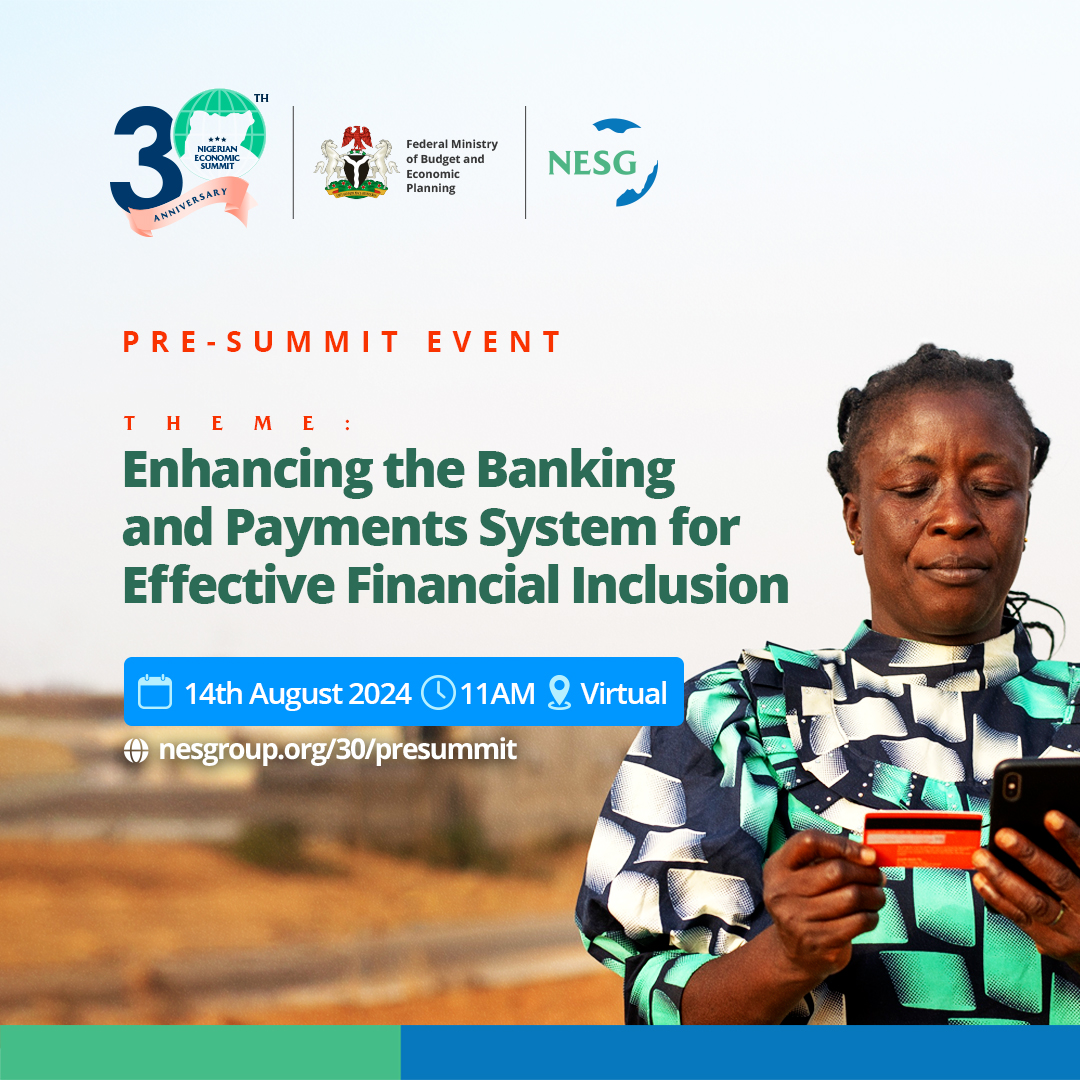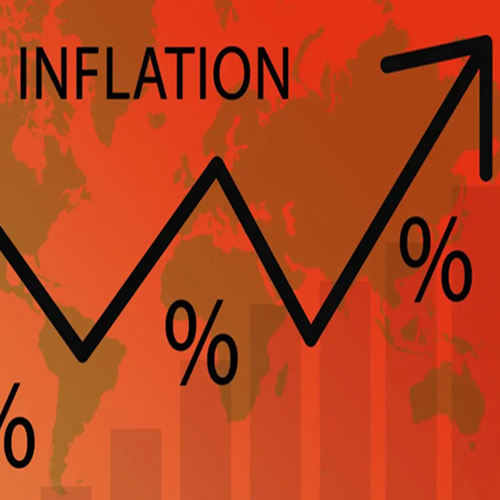Posted Fri, Aug 16, 2024 9:12 AM
NESG Hosts NES 30 Pre Summit Webinar on Enhancing Nigeria’s Banking and Payments System for Effective Financial Inclusion

The Nigerian Economic Summit Group (NESG) held a significant pre-30th Nigerian Economic Summit (#NES30) webinar on August 14, 2024, focused on "Enhancing the Banking and Payments System for Effective Financial Inclusion." The webinar aimed to raise awareness of the key challenges hindering Nigeria's banking and payments systems from achieving widespread financial inclusion.
In his opening remarks, NESG Board Member, Mr. Lanre Akinbo, highlighted Nigeria’s complex financial landscape. With a population of 220 million (2021) and a vast network of financial institutions—comprising 33 deposit money banks, 887 microfinance banks, and 291 active fintech startups—the country’s financial services ecosystem is expanding rapidly. Mobile phone usage reached 93% (103 million) in 2023, with 83% of adults now using digital financial services, up from 60% in 2020. Despite these advancements, cash remains the predominant means of transaction, especially in informal sectors.
“Financial inclusion is essential for improving economic access and reducing poverty and inequality,” Mr. Akinbo stated. However, he noted that breakdowns in financial infrastructure, low financial literacy, and dwindling trust in the system continue to undermine progress. The webinar focused on devising strategies to overcome these hurdles and create a more inclusive financial system that benefits the wider Nigerian economy.
Dr. Nurudeen Abubakar Zauro, Technical Adviser to the President on Development Finance and Financial Inclusion, delivered the keynote address. He emphasized the urgency for stakeholders to collaborate on fostering inclusive growth and addressing Nigeria’s pressing economic needs. Over 30 million Nigerians remain financially excluded, and only 6% of MSMEs have access to financial credit, despite their importance to the economy. Dr. Zauro highlighted the need for high-level interventions and praised the current administration’s commitment to financial inclusion, demonstrated through initiatives like student loans and consumer credit programs aimed at underserved communities.
Dr. Zauro further emphasized the importance of subnational collaboration, referencing a signed accord between the presidency, subnationals, and the private sector to create a legal framework that enhances financial inclusion across the country.
During the panel session, industry experts weighed in on the ongoing challenges and opportunities in the banking and payments sectors:
- Mr. Fasasi Sarafadeen Atanda, National President of the Association of Mobile Money and Bank Agents in Nigeria (AMMBAN), discussed how mobile platforms have transformed financial transactions but raised concerns about increasing fraud. He outlined AMMBAN’s efforts to partner with security agencies to combat fraud and promote grassroots financial inclusion through Neighbourhood Financial Inclusion Centres.
- Mr. Vincent Onwudinjo, representing the Managing Director/CEO of Accion Microfinance Bank, highlighted the importance of mobile penetration and financial literacy for MSMEs. He stressed the need for grassroots engagement to effectively onboard users and deepen financial inclusion.
- Mr. Ajibade Laolu-Adewale, Chairman of the Committee of E-Banking Industry Heads, discussed the need for improved collaboration between financial institutions to fight fraud and build trust. He highlighted the importance of a strong anti-corruption fund supported by donor agencies.
- Mr. Abraham Aziegbe, Chairman of the Committee of Heads of Bank Operations (CHBO), reiterated the need for collaborative efforts to achieve financial inclusion. He cited the lessons learned from the Naira redesign and emphasized the importance of stakeholder responsibility in supporting adoption rates.
Looking ahead, the conversation focused on leveraging technology to enhance financial inclusion. Expanding digital financial services, promoting financial literacy, and developing innovative financial products tailored to underserved populations were identified as key priorities. A collaborative approach involving governments, financial institutions, fintech companies, and civil society is crucial to overcoming the challenges and ensuring that the benefits of financial inclusion are widely shared.
Looking Ahead to NES #30:
The 30th Nigerian Economic Summit, themed "Collaborative Action for Growth, Competitiveness, and Stability," is set to take place from October 14th to 16th, 2024, at the Transcorp Hilton Hotel in Abuja. The Summit will convene stakeholders from across various sectors to address common challenges, create shared opportunities, and chart a path toward a unified, competitive, and prosperous future for Nigeria and the African continent.
Find a blog post
Latest Releases
_1731941578.png)
Leveraging Artificial Intelligen .. Read
4 days ago

Second Consecutive Increase: Hea .. Read
1 day ago

The Dynamics of Access and Influ .. Read
4 days from now
